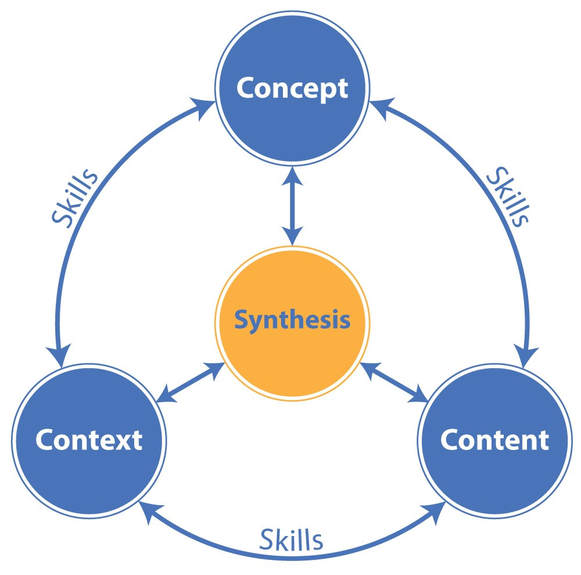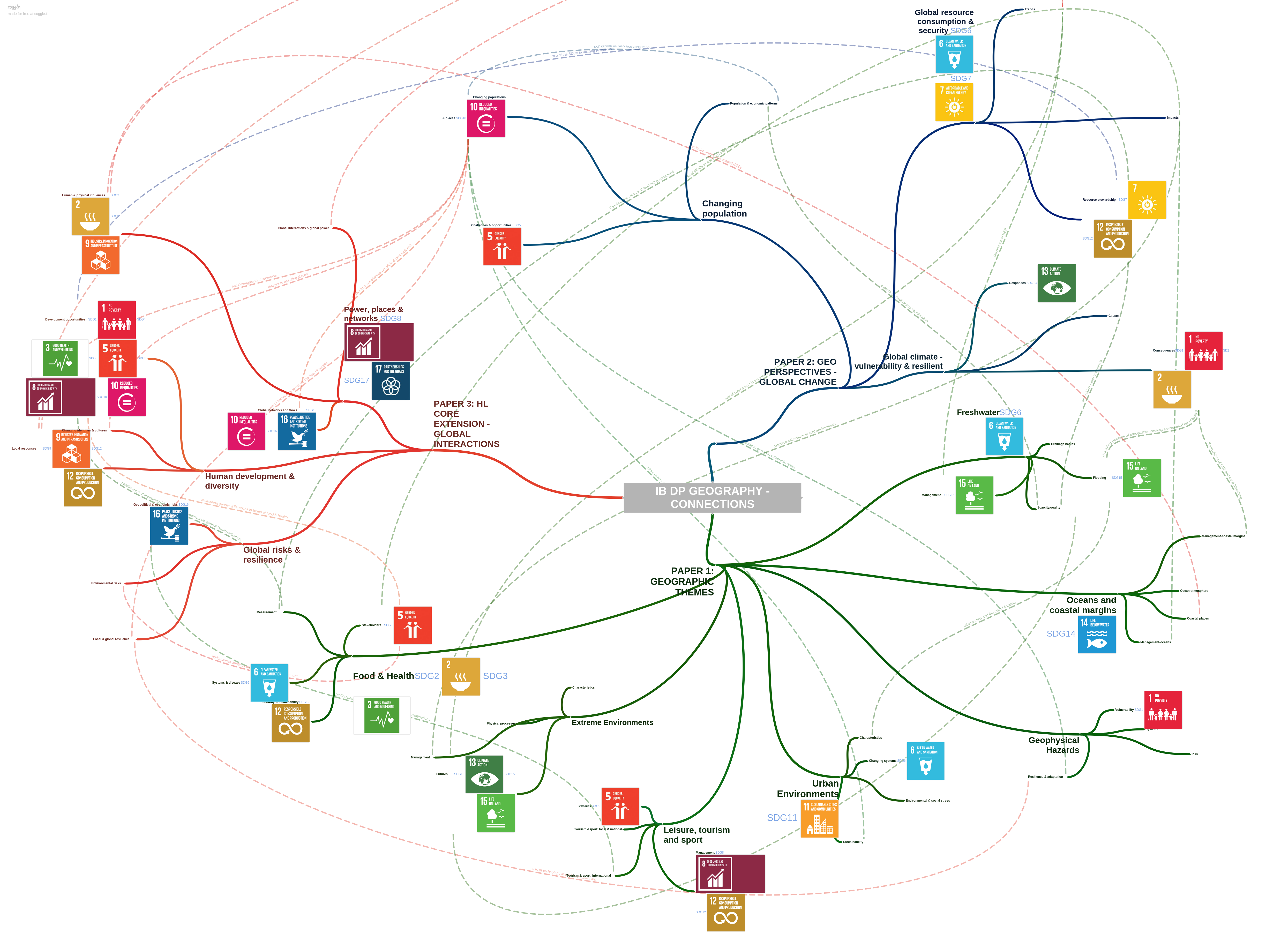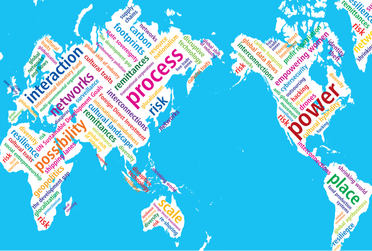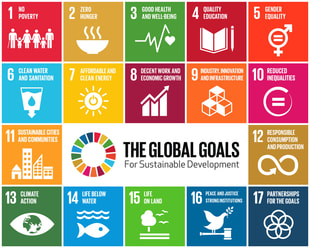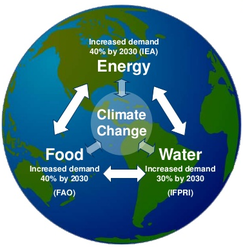IB Induction Event (1 week)...
|
Part 1 - Whole School Event
At IST, our students complete a one week induction event covering all subjects from each of the IB DP groups. For full information of the event, click on this link to see the structure and timetable. In terms of the Geography aspect, my work and resources are here (on geographypods.com). Part 2 - Group 3 Induction. Once the whole school event has concluded and we finally have students in subject groups, we aim to inform our students about the course, content and assessment. In the first lesson, we give all students a 'student friendly' copy of the syllabus and ask them to fill in the worksheet below. We explain to the students about the topics, structure and assessment structure and plot the 9 main areas onto the worksheet above. |
|
The students are then invited into each of the Group 3 classes where the teacher aims to give an overview of the course with a PowerPoint slide that summarises what the course is about in 5 minutes. This gives each student the chance to reflect on whether or not this course is what they want to do. An example of what my history colleague Russel Tarr does is here.
Task 1 - The students then return to their class and are given the two resources below (thanks to Russel Tarr again) and the working title, 'Things that made the modern world'. Full instructions can be found on the worksheet below.
Task 1 - The students then return to their class and are given the two resources below (thanks to Russel Tarr again) and the working title, 'Things that made the modern world'. Full instructions can be found on the worksheet below.
Task 2 - All G11 students then present to each other (Geography, History & Business) about the one object they have identified that has the biggest link in with the future IB DP study programme.
To wrap up... students have to then fill in the grid sheet below to show their understanding of their subjects. Other staff at our school have also been instructed to do the same that the students have a full overview BEFORE the start of the courses and at the end of the 3 week induction period.
The Geography... at last!
There are three areas key to the understanding of the new IB course and it is crucial that you have an early awareness of each area to enable you to make the very most of the course and be able to carry out effective synthesis. Of course, you knowledge and understanding of each of these three areas will be further enhanced during their incorporation into the vast majority of units of work within the HL and SL IB DP Geography curriculum.
First of all, let's just spend a little time looking at the principle of synthesis. It's going to be really important for the next two years in your IB DP Geography course and more widely in your other DP subjects too. Great Geographers naturally 'do synthesis' anyway and the chances are that if you got an A or higher in your IGCSE Geography exam or have studied MYP, you'll be well used to carrying it out effectively.
First of all, let's just spend a little time looking at the principle of synthesis. It's going to be really important for the next two years in your IB DP Geography course and more widely in your other DP subjects too. Great Geographers naturally 'do synthesis' anyway and the chances are that if you got an A or higher in your IGCSE Geography exam or have studied MYP, you'll be well used to carrying it out effectively.
Let's apply this model of thinking to the video beneath. This is a video about global population growth. We know that population has been exploding in recent history and there are more people on planet earth than ever before. However, what are some of the hidden complexities behind this concept. Watch the video below once taking notes as you on the worksheet embedded underneath the video.
Link to McDonalds Article Features in the worksheet above.
Here is another recent article that you could attempt to synthesise (USA tariffs on Chinese products - Sep 2018)
So, by now you will hopefully have a better grasp of what constitutes a synthesis. This is also known in Geography as 'systems thinking' and is going to be an important skill to use throughout the course. It is really important that you DO NOT compartmentalise the individual components of the IB DP Geography course into convenient separate boxes, each exclusive and not connected in any way to anything else. Furthermore, you will spot extensive links between your IBDP subjects, especially within the Sciences and Design Technology!
Geography means 'description of the Earth' and long before we were around, the Earth had found a balance in its functioning where plant and animal life flourished, the carbon cycle functioned and every now and then, an enormous natural hazard would reset the balance! Since the industrial revolution and rapid population growth, this balance has been knocked badly and humans are still discovering that if we try to control nature in one way, there are bound to be severe knock-on effects. You will have seen examples of these events, also called 'positive feedback loops' in your previous studies. Examples include climate change due to excessive fossil fuel use, beach starvation due to groyne construction, flash flooding due to deforestation, urban heat islands due to urbanisation, water shortage due to dam construction, severe social issues due to anti natalist policies .... and so the list goes on.
One way of visualising these links between the units in the IB DP Geography is by using the diagram below that shows the links between topics and also incorporates the 2030 Sustainable Development Goals (more on those later). This concept mapping graphic was produced by the IB and can be viewed in a zoomed in version by clicking on the link underneath the diagram. This should prove to be an excellent tool in helping you to write exam type essay responses.
So, by now you will hopefully have a better grasp of what constitutes a synthesis. This is also known in Geography as 'systems thinking' and is going to be an important skill to use throughout the course. It is really important that you DO NOT compartmentalise the individual components of the IB DP Geography course into convenient separate boxes, each exclusive and not connected in any way to anything else. Furthermore, you will spot extensive links between your IBDP subjects, especially within the Sciences and Design Technology!
Geography means 'description of the Earth' and long before we were around, the Earth had found a balance in its functioning where plant and animal life flourished, the carbon cycle functioned and every now and then, an enormous natural hazard would reset the balance! Since the industrial revolution and rapid population growth, this balance has been knocked badly and humans are still discovering that if we try to control nature in one way, there are bound to be severe knock-on effects. You will have seen examples of these events, also called 'positive feedback loops' in your previous studies. Examples include climate change due to excessive fossil fuel use, beach starvation due to groyne construction, flash flooding due to deforestation, urban heat islands due to urbanisation, water shortage due to dam construction, severe social issues due to anti natalist policies .... and so the list goes on.
One way of visualising these links between the units in the IB DP Geography is by using the diagram below that shows the links between topics and also incorporates the 2030 Sustainable Development Goals (more on those later). This concept mapping graphic was produced by the IB and can be viewed in a zoomed in version by clicking on the link underneath the diagram. This should prove to be an excellent tool in helping you to write exam type essay responses.
Zoomable version of the graphic above (produced by the IBO) available here
Global Perspective - 3 Key Areas of #IBGeog19
We are going to spend a little longer studying the importance of the following aspects of the course that will help with a systems thinking approach and enable you to look more closely at content in the IB DP course. Each section is designed to take up to two lessons and has CAS opportunity links too.
Click on the links above to access materials designed to improve your understanding of these three critical elements.


